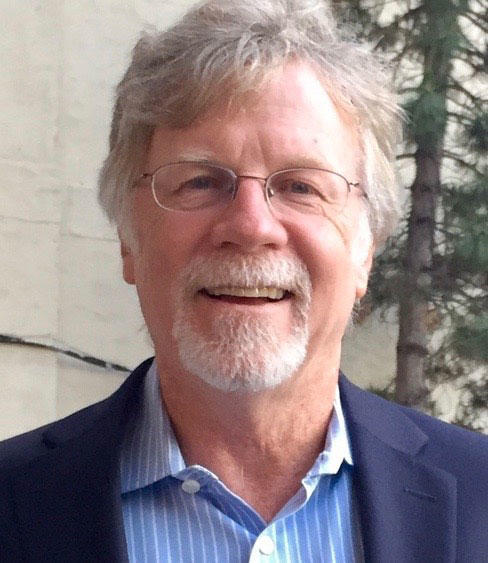Concerned Veterans for America, a group of policy advocates funded by the billionaire Koch brothers, who want to shrink the size of federal bureaucracies including the Department of Veterans Affairs, appears to have won a major victory with President Trump’s firing of Dr. David Shulkin as VA secretary.
Trump announced by tweet he wants his personal physician at the White House, Navy Rear Adm. Ronny L. Jackson, to run the government’s second largest department. Jackson’s bio sheet shows no executive level experience to justify the pick. However, Trump sees Jackson almost daily and the 50-year-old physician praised the president’s health effusively at a White press conference in January.
Shulkin, a holdout from the Obama administration and competent cabinet secretary who Trump had extolled openly and often during his first year as president, saw his support within the administration deteriorate in recent months.
In a New York Times commentary Thursday, Shulkin said VA became “entangled in a brutal power struggle, with some political appointees choosing to promote their agendas instead of what’s best for veterans. These individuals, who seek to privatize veteran health care as an alternative to government-run VA care, unfortunately fail to engage in realistic plans regarding who will care for the more than 9 million veterans who rely on the department for life-sustaining care.”
Shulkin said the private sector “is ill-prepared to handle the number and complexity of patients that would come from closing or downsizing VA hospitals and clinics, particularly when it involves the mental health needs of people scarred by the horrors of war.”
At the urging of major veteran organizations, Shulkin resisted the influence of Concerned Veterans for America alumni, hired at the White House staff and at Fox News. CVA and its supporters want to see more VA health care dollars shifted from modernizing and staffing VA hospitals and clinics to subsidizing private sector care, or offering health insurance, so veterans can use community providers.
Traditional veteran groups argue that VA medical centers and clinics must be fully staffed and resourced to ensure timely care and to protect VA-unique expertise in treating wounds of war. The private sector, they maintain, can’t match VA for coordinated veterans care or for providing poly-trauma care, prosthetic and orthotic services, treating post-traumatic stress and traumatic brain injury, caring for spinal cord injuries or rehabilitating veterans who lose hearing or sight.
“Most Americans understand that the people we send off to war have different needs than the general population,” Shulkin told me in 2016 interview to argue for preserving the VA health care system.
But Shulkin’s standing to fight for VA programs and budgets was weakened in February when the VA Inspector General issued a scathing report on travel abuses by Shulkin and staff on a 10-day trip to Denmark and London last July. The trip cost VA more than $122,000, included Shulkin’s wife and much sightseeing, and a gift of tickets to the Wimbledon tennis tournament.
A VA ethics official had approved the trip in advance based in part on misinformation from Shulkin’s staff, the IG found. To add “relevant context,” the IG said days before the trip, Shulkin signed a memo to all VA staff directing that managers allow only “essential” employee travel to save on travel dollars.
As secretary, Shulkin was forced to accept White House picks for key VA staff positions. After release of the IG report, Shulkin reimbursed VA for his wife’s travel costs but also complained to news outlets that some White House appointees at VA were working to undermine him. Intrigue and dysfunction at VA perhaps peaked when executives in charge of Shulkin’s communications staff reportedly used the IG report to urge staff on the House Veterans Affairs Committee to support Shulkin’s removal. Committee chairman Rep. Phil Roe (R-Tenn.) instead gave the secretary a strong endorsement.
With a few exceptions, Shulkin was popular with both Republicans and Democrats on veteran affairs committees as well as with major veteran organizations. Many of them lauded his service on the evening he was fired.
Shulkin “has shown grace under fire amid the long-circulated rumors of his imminent departure,” said John Rowan, national president of Vietnam Veterans of America (VVA). Rowan noted Shulkin’s “firm stance to protect [VA] from those who would like to see it handed over to the for-profit, private-sector health systems.”
Shulkin, said the American Legion, was “making meaningful, positive changes at the VA.” Disabled American Veterans said the departing secretary made “tremendous strides in areas such as appeals modernization, mental health care access and department-wide oversight and accountability” while steering “VA toward sensible, lasting transformation of veterans’ health care.”
DAV Commander Delphine Metcalf-Foster warned of a leadership vacuum at VA with no secretary, no undersecretaries of health or benefits, and with the named acting secretary, Robert Wilkie, newly installed as Pentagon manpower chief, having “no background in health care and no apparent experience” with the VA.
Concerned Veterans for America said Shulkin made “significant headway in reforming the department, but ultimately became a distraction from the important task of improving health care for our veterans.”
Physician Shulkin ran private sector health systems and served a year as VA undersecretary of health before becoming secretary. In 2016, he criticized a “strawman” report from outside health advisors appointed to recommend ways to improve veteran services. The report proposed gradually shutting down all VA medical centers and outpatient services and sending nine million patients into the private sector for care. The congressionally-created Commission on Care eventually rejected this minority view, in part at Shulkin’s urging.
“This would be a terrible mistake, a terrible direction for veterans and for the country, [and] would lead to the end of the VA health care system,” Shulkin said.
One commissioner who signed the strawman report, Darin Selnick, was an advisor to Concerned Veterans for America. He landed a job at VA with the Trump administration but bumped heads with Shulkin and moved the White House to advise on veterans’ issues. Selnick has been serving on the Domestic Policy Council. According to Politico, he announced in a recent email plans to return to VA.
Fox News personality Pete Hegseth, a former director of CVA who also advises Trump on veteran issues, was considered for VA secretary, according to news reports. But he would be opposed by most traditional veteran groups.
Trump’s new pick for secretary faces a steep learning curve. In 1995 Jackson got his Navy commission and graduated as a doctor of medicine from University of Texas Medical Branch. An emergency medicine specialist, he was detachment officer-in-charge and diving medical officer at Explosive Ordnance Disposal Mobile Unit 8 in Sigonella, Italy. He also was diving safety officer at the Naval Safety Center in Norfolk. In 2005 he deployed in support of Operation Iraqi Freedom as emergency medicine physician with a surgical shock trauma platoon in Taqaddum, Iraq. In 2006, Jackson became a White House physician and has served there ever since including as physician to the president since 2013.
Shulkin understood the intricacies of a wide array of veteran programs when he appeared before Congress or met with veteran groups. He shaped caregiver expansion plans and led efforts to streamline VA community care options. But he resisted legislation favored by the White House to have VA cede more control of veterans’ health care choices, fearing a steady shift toward privatization of VA care.
What Jackson knows about the VA or running a large organization is to be determined. Sen. Bernie Sanders (I-Vt.), former chairman of the Senate Veterans Affairs Committee, warned that he’d better not want to privatize VA health care. The Koch brothers want that, Sanders said, but every major vet group opposes it.
“I stand with them,” Sanders said. “Our job is to strengthen the VA, in order to provide high-quality care to our veterans, not dismember it.”
Sen. Johnny Isakson (R-Ga.), chairman of the Senate Veterans Affairs Committee, said Shulkin “made a tremendous impact toward improving the lives of veterans.” Of Jackson, he said, “I look forward to…learning more about him.”
To comment, write Military Update, P.O. Box 231111, Centreville, VA, 20120 or email milupdate@aol.com or twitter: @Military_Update.

|
Tom Philpott has been breaking news for and about military people since 1977. After service in the Coast Guard, and 17 years as a reporter and senior editor with Army Times Publishing Company, Tom launched "Military Update," his syndicated weekly news column, in 1994. "Military Update" features timely news and analysis on issues affecting active duty members, reservists, retirees and their families. Tom's freelance articles have appeared in numerous magazines including The New Yorker, Reader's Digest and Washingtonian. |

|
His critically-acclaimed book, Glory Denied, on the extraordinary ordeal and heroism of Col. Floyd "Jim" Thompson, the longest-held prisoner of war in American history, is available in hardcover and paperback on Amazon. |



